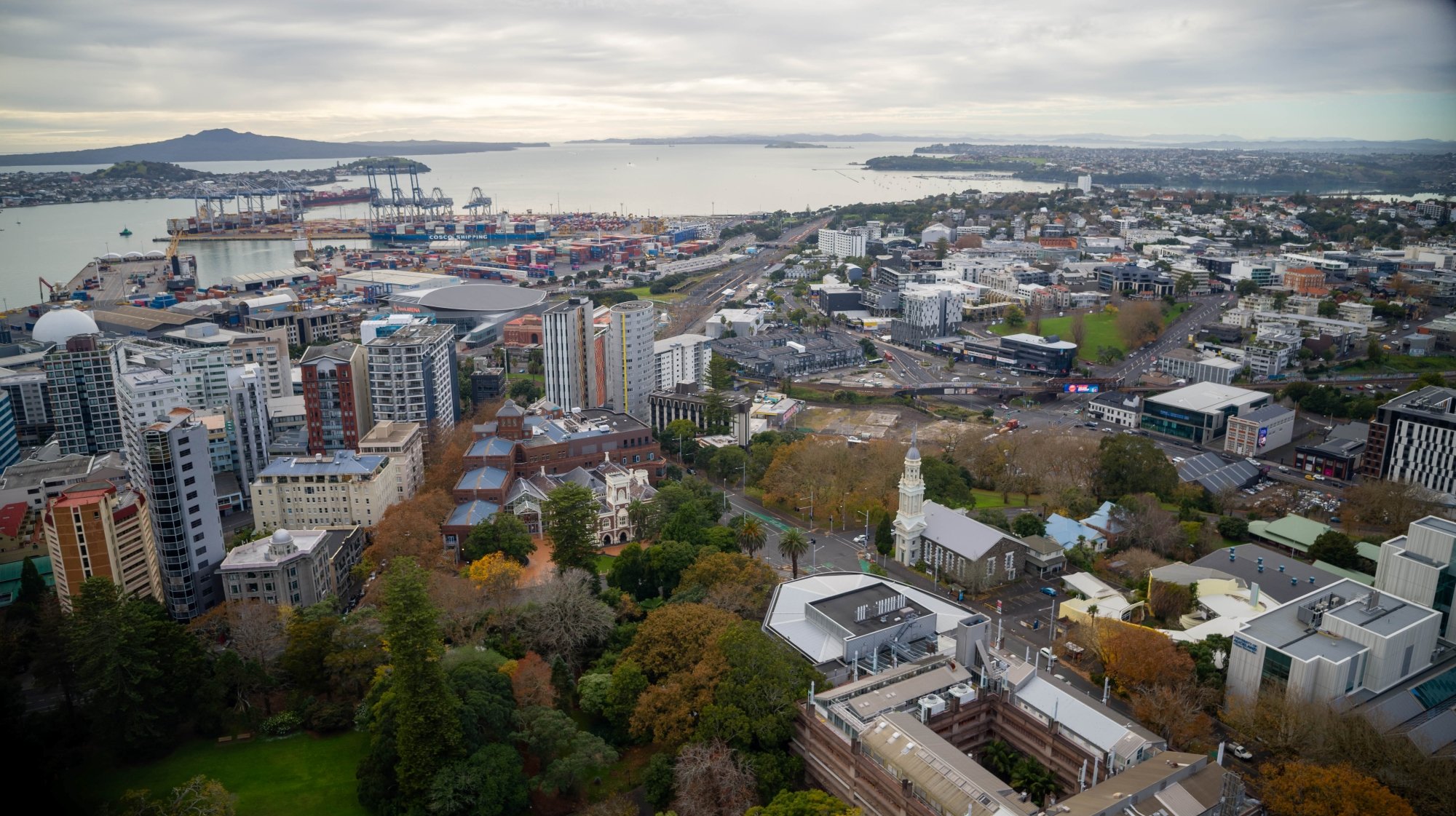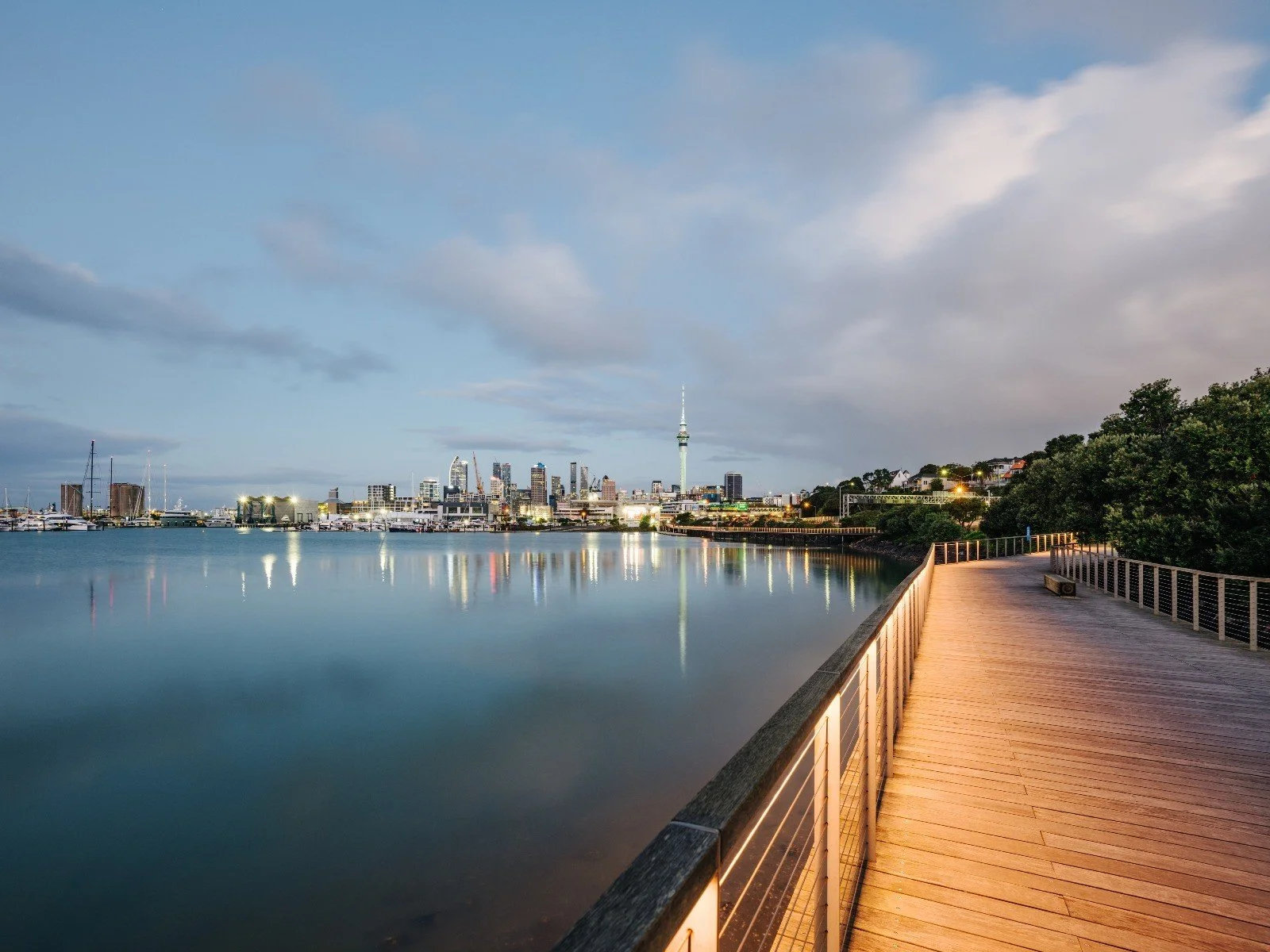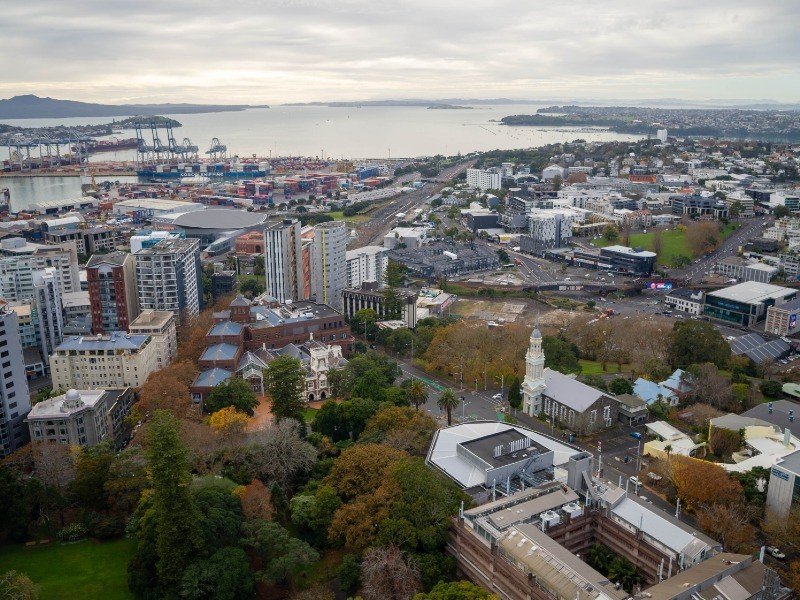
Investment and trade
Annual export growth rate
Auckland plays a significant role in the country’s investment and trade landscape. As the commercial hub of the country, the region accounts for nearly half of FDI projects in New Zealand. While Auckland accounts for less of New Zealand’s total exports (21%) than it does GDP (38%), tradable services tend to concentrate in Auckland, many of which are “exported” to other regions of New Zealand.
Modelled data by Infometrics shows that Auckland’s exports were worth close to $18 billion in the year to March 2023, an increase of 16 per cent on the year prior. This represented higher growth than the rest of New Zealand (11%). Auckland’s exports were more adversely impacted by the pandemic, falling 24 per cent in the year to March 2021 and only recovering modestly (+3.1%) in the year to March 2022. The respective growth rates for the rest of New Zealand were –18.5% and 11%.
When it comes to the value of cargo, Auckland’s exported cargo was valued at an impressive $74 billion in 2023, marking a 14% increase compared to 2019. It is worth noting that sea cargo contributes 40% of the value of Auckland’s exported cargo, while air cargo accounts for the remaining 60%.
The manufacturing industry is the largest exporter in Auckland, making up 50% of total exports. ‘Information media and telecommunications’ and ‘professional, scientific, and technical services’ are the next largest export industries and have experienced strong growth since 2019. Auckland’s tech sector is a large contributor to this – over 80% of Auckland’s leading tech firms’ revenue stems from overseas. Overall, Auckland is a key contributor to four of New Zealand’s five largest exporting industries, with the exception being ‘agriculture, forestry, and fishing.’
-
Data from fDi Markets on investment projects in Auckland from 2010-2019 shows that the main industries for FDI have been financial services, logistics and real estate. Since then, analysis of Overseas Investment Office (OIO) data by KPMG shows that FDI in Auckland fell considerably during the pandemic. While there was a strong recovery in 2023, driven by investment in health care and agri-business, this still fell short of pre-pandemic levels.
Similar to the rest of New Zealand, the largest source countries for FDI in Auckland have traditionally been Australia, the US and the UK. Investment from China, Japan, Canada and Singapore has also been significant in recent times.
External shocks have had a significant impact on investment and trade in Auckland. Due to New Zealand’s geographic isolation and reliance on international buyers and suppliers, the country is particularly vulnerable to external shocks. The COVID-19 pandemic highlighted this vulnerability, as the global economy faced restrictions and trade was disrupted. Geopolitical uncertainties, such as the Russia-Ukraine conflict and US-China relations, further contribute to the unpredictability of the international environment. These uncertainties can impact supply chain security and disrupt key trade routes, potentially reducing access to markets and goods, and increasing shipping costs. Global shipping rates have nearly doubled in recent months, largely due to current disruptions in the Red Sea. This may cause a further increase in the prices of imported goods for Auckland businesses and consumers.
The IMF’s latest global economic outlook shows that while supply chain pressure has fallen since the pandemic period, there is still a downside risk of geopolitical conflicts causing shocks to supply chains and increase in food, energy and transportation costs. Furthermore, there is evidence of trade between economies in politically distant blocs (e.g. the EU and US vs China, Russia and Russian allies) slowing more since the onset of the Russia–Ukraine conflict. If such “fragmentation” continues, this could have an adverse impact on efficiency, specialisation, and competition.
Climate change is another factor that has influenced investment and trade in recent years. There has been a global shift towards more sustainable trade practices to address climate change. Extreme weather events caused by climate change can disrupt international trade routes and trade infrastructure. In 2022, New Zealand ranked first in the Sustainable Trade Index, reflecting its commitment to economic growth, environmental protection and societal development. The country scored highly in categories such as labour standards, political stability, air pollution and environmental standards in trade.
Finally, the advancement of artificial intelligence (AI) could transform many aspects of the world economy. While the impact is still unclear, it could have profound effects on productivity and investment, especially in advanced urban economies like Auckland. According to a recent paper by the New Zealand Treasury, the benefits could be dependent on the pace of diffusion and levels of investment in intangible capital in New Zealand, both of which have traditionally lagged behind other developed economies.
Sources: Te Manatu Waka, The London School of Economics and Political Science, Hinrich Foundation, MFAT, International Monetary Fund (IMF), fDi Markets, Technology Investment Network (TIN), Infometrics (export data), KPMG: Foreign Direct Investment in New Zealand
Auckland Economic Monitor
A summary of key economic information about the region
Auckland’s economy: What’s changed?
Deep dives
Cost of living
Inflation reached levels not seen since the 80s in 2022 and remains above historical levels.
Investment & trade
Auckland plays a significant role in the country’s investment and trade landscape.
Auckland’s industrial employment areas
Trends over the last two decades.











